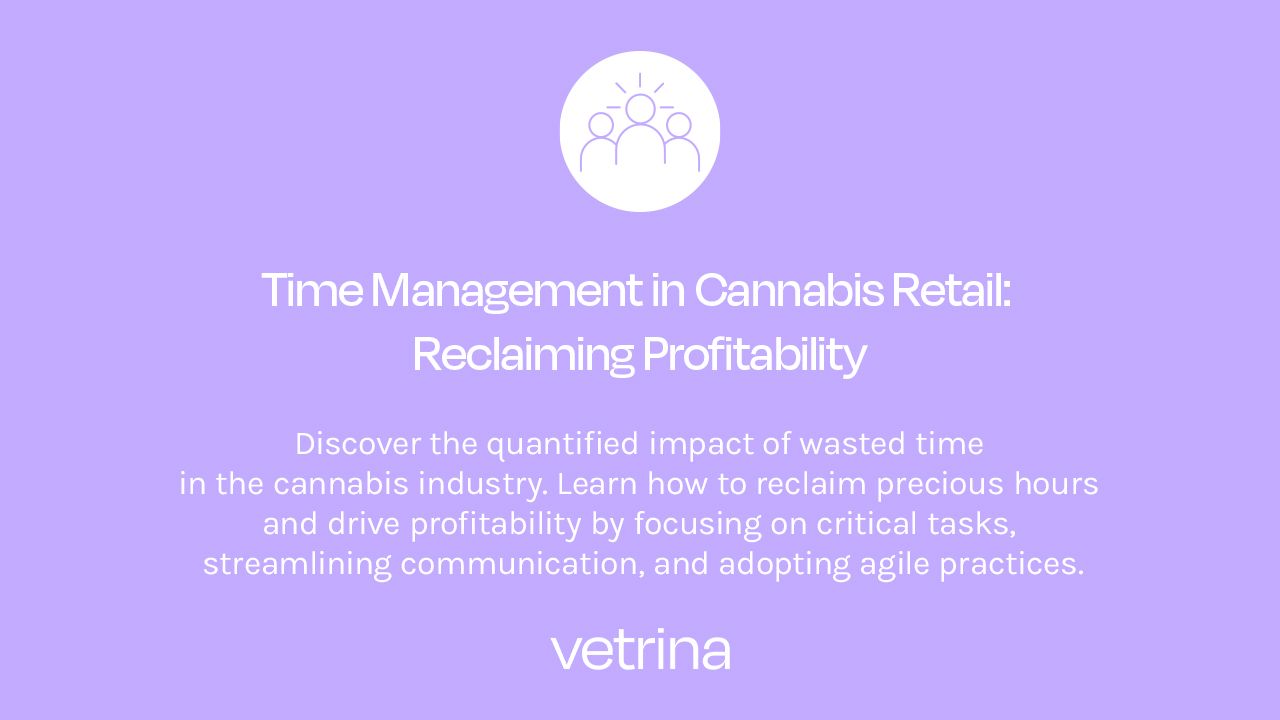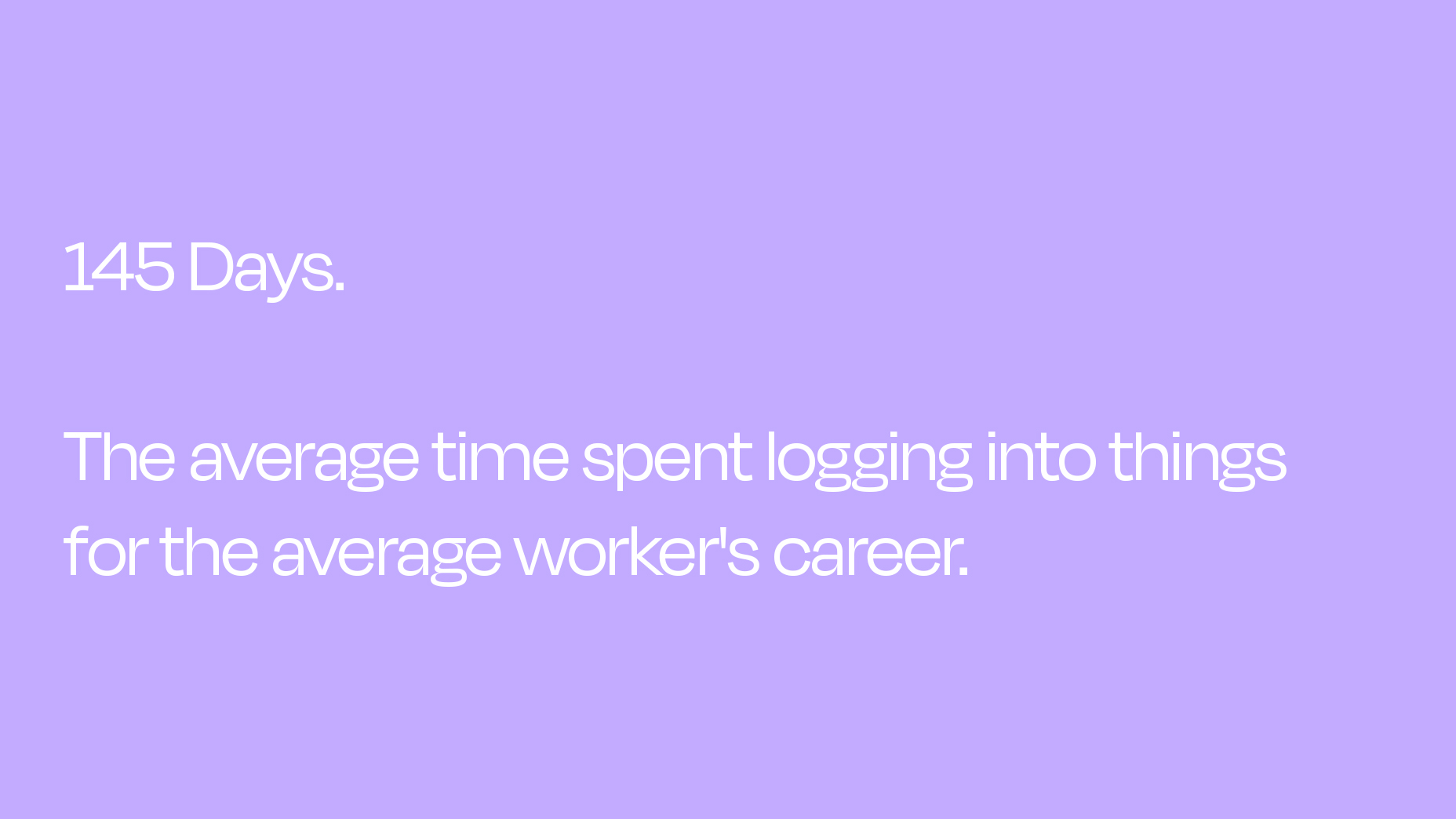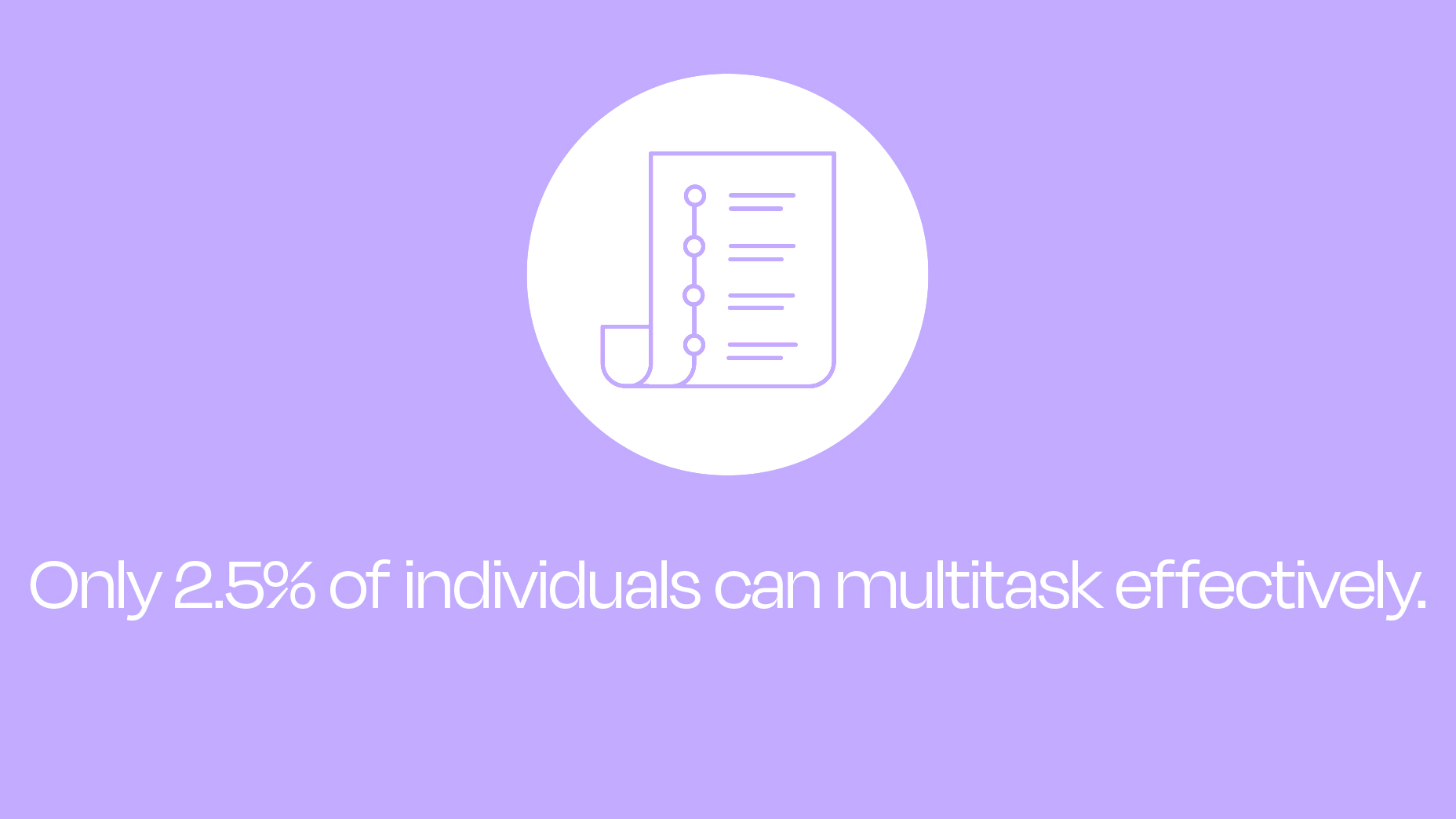
Time Management in Cannabis Retail: Reclaiming Profitability
Sep 11, 2023Time is a precious resource in the world of cannabis retail management. The daily grind can feel like a never-ending race against the clock, leaving managers longing for more hours in the day.
One of the main culprits of this time crunch is the organizational demands placed upon employees. Tasks such as sifting through emails, logging into systems, and creating detailed presentations eat away at valuable working hours.
In this blog, we delve into the hidden world of wasted time in the cannabis industry and shed light on strategies to combat this issue.
By quantifying time lost and understanding its impact, we can reclaim precious hours and redirect them toward boosting profitability.
Where Does All the Time Go: A Study
Measuring wasted time is difficult, but it's important to understand how big of a problem it is. Lucky for us, there are plenty of in-depth studies we can pull from. A striking example of this comes from a study featured in The Economist, which was conducted by the Maryland and Delaware Enterprise University Partnership. This comprehensive study delved into the daily work routines of managerial professionals in both the United States and Britain, shedding light on the astonishing amount of time devoted to seemingly trivial but essential tasks.
The study's findings unearthed a multitude of such time-consuming activities. Take, for instance, the simple act of logging into devices and computers. While it may seem inconsequential, the cumulative time spent on this mundane task throughout a worker's career amounts to a staggering 145 days. It's a considerable chunk of one's professional life dedicated to a seemingly routine activity.

But that's not all; the frustration doesn't stop at login screens. The irritation of waiting for screens to load compounds the issue, collectively further eroding a worker's precious time. Correcting typos, a universal bane, is another silent productivity killer.
On average, employees dedicate 20 minutes of their day, or roughly 180 days over the course of their careers, to fix these common errors. The most notorious of these errors is "Thnaks," topping the list of the English-speaking world's most corrected words, closely followed by "teh," "yuo," and "remeber."
When we look at these time frames in their entirety, it becomes evident why addressing wasted time is kind of a big deal. The authors of the study even coined a term for this phenomenon - "weighted total futility" (WTF). It represents the lifetime estimate of time that could have been utilized more productively, serving as a poignant reminder of the profound impact of time wasted on routine activities.
Understanding the extensive reach of these seemingly small tasks not only highlights the need for more efficient work practices but also emphasizes the significant potential for professionals to redirect their energy toward more meaningful and productive efforts in the cannabis industry.
Where is The Average Cannabis Retailer or Brand Wasting Time?
Understanding where you and your team spend, or unfortunately, waste time is an important part of making a business succeed. For mega-brands, it's not uncommon to enlist third-party assistance to meticulously time their teams as they perform essential tasks. This meticulous timing serves a dual purpose: calculating costs and optimizing scheduling. For instance, have you ever wondered how long it takes for your team to complete a transaction at the cash register? Or perhaps the time it requires to restock inventory?
While these metrics are undoubtedly valuable, for cannabis retailers and brands, the focus extends beyond the sales counter or stockroom. It's about breaking down the complex details of time management for both leadership and key roles such as inventory buyers.
Consider this - on average, deleting emails consumes approximately six weeks of an employee's working life. With this staggering statistic in mind, is it any wonder that important messages might occasionally slip through the cracks?
Let's delve into a list of the most significant time wasters in the professional realm, as highlighted by Forbes:

1. Unnecessary Meetings: A study revealed that 67% of employees find excessive time spent in meetings counterproductive. Astoundingly, a whopping 92% admit to multitasking during these sessions.
2. Multitasking: Multitasking, despite its perceived efficiency, is an area where people tend to overestimate their prowess. In reality, only 2.5% of individuals can multitask effectively.

3. Micromanaging Employees: Micromanagement not only squanders your own time but also hampers your team's productivity. Instead, fostering a culture of clear expectations, open communication, and employee ownership is important.
4. Disorganization: Misplacing crucial documents or contact information can lead to unnecessary stress and frustration, affecting not just you but your entire team.
5. Irrelevant Emails: Business leaders waste approximately 3.4 hours each week sifting through emails that don't contribute to their business's value. That accumulates to roughly 177 hours annually, equivalent to a whole week of lost time.
6. Lack Of Delegation: If you find yourself entangled in trivial tasks that detract from your core business responsibilities, it's time to embrace delegation. Failure to delegate can result in wasted time and energy instead of business growth.
7. Online Distractions: In an era where a significant portion of work occurs on computers, online distractions sneak up on you and your team. Quick diversions like checking social media or conducting unplanned web searches can add up over time. Interestingly, social media isn't always a villain; many employees use it for work-related purposes, such as research, promoting the company, and expanding their professional network.
In fact, according to CFOs, these activities can be viewed as beneficial for the company by expanding valuable contacts, showcasing the company's attributes, attracting new business, and enhancing customer service.
Recognizing and addressing these common time wasters not only improves productivity but also allows professionals in the cannabis industry to allocate their time more efficiently, ultimately contributing to business success.
How Does Wasted Time Hurt Cannabis Retailers?
In cannabis retail, wasted time isn't merely a minor inconvenience; it can have a profound impact on the success and sustainability of the business.
How has Vetrina seen wasted time hurt cannabis retailers and brands alike? Here's a closer look at how inefficiencies can take a toll:
Impacts on Profitability: Amid the backdrop of pricing compression and a competitive market, every dollar counts. Wasted time equates to wasted resources, which can directly erode profitability. For cannabis retailers, ensuring that every minute contributes to revenue generation is critical.
Productivity Drain: Wasted time acts as a silent productivity killer. When employees are bogged down with non-essential tasks and time-consuming activities, their ability to focus on revenue-generating activities diminishes. This productivity drain can result in missed sales opportunities and hinder growth.
Resource Allocation: Inefficient processes often lead to misallocation of resources. For instance, dedicating excessive time to administrative tasks can divert resources away from customer service, product development, and marketing efforts that are vital for attracting and retaining customers.
Cost Implications: Wasted time incurs hidden costs. Whether it's the extra labor required to correct errors or the time spent rectifying miscommunications, these costs can accumulate over time and impact the bottom line.
Employee Morale and Turnover: Continual exposure to inefficiencies can lead to employee frustration and burnout. When employees feel that their time is not being used effectively, job satisfaction decreases, and turnover rates may rise, leading to recruitment and training expenses.
How to Stop Wasting Your Cannabis Retail Manager’s Time
We know it sounds harsh, but the truth is that improving your profitability is likely to make your employees want to stick around longer and do a better job overall. At Vetrina, we have found that focusing on these four areas helps everyone save time:
Prioritize Profitability: Focus on tasks and activities that directly contribute to profitability. This involves identifying revenue-generating opportunities and allocating resources accordingly.
Embrace Efficiency: Implement a "minimum viable product" mindset, streamlining processes to eliminate unnecessary steps. Test and adapt efficiency measures, leveraging the cannabis industry's agility to fine-tune operations continually.
Role Expectations and Standardization: Clearly define role expectations within the retail team and standardize tools and processes. This ensures that employees know their responsibilities and can work efficiently without ambiguity.
Effective Communication: For cannabis brands, optimizing communication methods and preferences with retail partners is vital. Streamlining interactions and reducing unnecessary back-and-forth can save time for both parties.
Wasted time poses significant challenges for cannabis retailers, affecting profitability, productivity, and customer satisfaction. However, by recognizing the issue, embracing efficiency measures, and optimizing internal processes, businesses can reduce the impact of these challenges and position themselves for success in a rapidly evolving industry.
Tip for Cannabis Retailers and Brands:
For Retailers:
- Role Expectations: Clearly outline the expectations, daily practices, and deliverables for different retail roles, ensuring everyone understands their responsibilities and tasks.
- Standardize Tools: Standardize the use of common tools and applications across your organization, preventing the need to constantly adapt to changing technology trends.
For Brands:
- Quick Communication: Opt for quick communication methods like phone calls or text messages instead of relying on lengthy email exchanges, improving the efficiency of your interactions.
- Scheduled Email Checks: Implement specific times for checking emails and Slack messages to minimize distractions and maintain focus on essential tasks.
- Preferred Communication Channels: Incorporate preferred communication channels within your sales Customer Relationship Management (CRM) system to streamline outreach to key retail accounts, ensuring effective and efficient communication.
The struggle against wasted time is real. However, recognizing and addressing this challenge head-on can pave the way for more focused and profitable endeavours.
By embracing agile practices and redefining priorities, cannabis retailers and brands can overcome the time sink and thrive in a competitive landscape.
As you navigate the complex world of cannabis management, remember that efficiency is key.
If this blog has you wondering how many hours a year you spend deleting emails and fixing typos, make sure to subscribe to our newsletter as we continue to share expert insights you can action.
Tactical insights to become
a Cannabis Retail Insider!
Access expert insights in one easy-to-digest
and follow-along newsletter.
We hate SPAM. We will never sell your information, for any reason.

